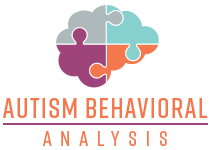Many parents feel terrified about the increasing number of diagnosed autism cases. But there is no reason to feel lost. Here is some important autism info for parents, including information on autism behavioral analysis and other therapy programs. This information can help you understand autism spectrum disordered and find appropriate autism treatment centers.
Autism Info for Parents – An Explanation of Autism Spectrum Disorder
Autism spectrum disorder (ASD) is a set of complex neurodevelopment disorders. Its main characteristics are the specific and repetitive patterns of behavior the child displays. Children with ASD can also experience difficulties in communicating and interacting socially.
Fortunately, early intervention for autism is possible since the symptoms are present in early childhood. Some parents become confused with the term “spectrum” attached to autism. This word simply means each person with ASD displays unique symptoms.
People with ASD display a wide array of symptoms, levels of disabilities, and skills. Some people can adequately perform daily living activities. Others need significant support so they can do even basic activities.
When parents hear their children might have autism, they naturally feel apprehensive. However, with the right support, each child can grow into a happy and healthy young adult.
Given that there is much conflicting information on ASD, finding the right source is essential. Autism info for parents is best obtained from the Centers for Disease Control and Prevention and the World Health Organization, as well as other trusted health organizations.
What Causes Autism?
Autism affects brain development, which impairs social skills. The damage can be from mild to severe. As of now, experts still cannot pinpoint the actual cause of autism, but there are theories.
Possible causes of ASD include:
- Genetics
- Parent’s age
- Exposure to industrial chemicals
- Low birth weight
- Metabolic imbalances
One thing that many parents incorrectly believe is that vaccines are the cause of autism. However, there are no studies to support this while there are at least two dozen disproving the connection between vaccines and autism.
Screening, Diagnosis, and Treatments for Autism
There are various methods to screen, diagnose, and treat autism.
Screening
The diagnosis for autism starts with a subtle screening. It happens when a concerned parent or doctor recognizes symptoms in a child. The problem is that ASD symptoms significantly differ from person to person. Going for periodic checkups is crucial for early detection.
Pediatricians often use formal screening tools such as:
- Modified Checklist for Autism in Toddlers (M-CHAT): Consists of twenty-four yes/no questions and is used for screening children age 18 months
- Infant-Toddler Checklist: A new tool for determining if a child is at risk for autism and language or developmental delay. Clinicians use this checklist for children aged 6 months to 24 months.
Diagnosis
The tests performed during screening do not guarantee the child has autism. It is intended only to help pediatricians determine what to do next. After the screening process, pediatricians perform a definitive diagnosis by evaluating suspected children’s responses to specific activities.
Treatments
Unfortunately, there is no cure for autism. But there are therapies and behavioral interventions that can remedy or improve the symptoms. The treatment plan is unique to each individual, taking into account their specific needs.
Medication
Antipsychotic medications can relieve severe behavioral problems and symptoms. For instance, medication for attention deficit disorder can decrease hyperactivity and impulsivity.
Finding Autism Behavioral Analysis Treatment
This is a system of treatment meant to teach a person with ASD desired behaviors through rewards and consequences.
Autism parent training programs can help provide support alongside other autism treatment programs. Speech therapy, play therapy, nutrition therapy for children with autism, and Applied Behavior Analysis are among the autism therapies they can provide at home. Take the time to read more on autism info for parents to learn how you can support your children’s growth and development.







